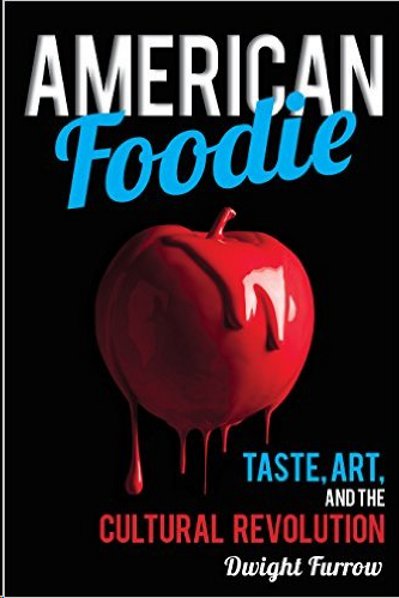Why Real Foodies Are Tired of the ‘Foodie’ Myth

American Foodie: Taste, Art and the Cultural Revolution
By Dwight Furrow
Rowman and Littlefield Publishers
188 pages
I hate the word ‘foodie.’ I think it belittles food as a genuine and complex interest. I think of foodies as those who claim to love food but don’t discuss its more complicated issues of health, economics, gender roles, cultural appropriation, and environmental concerns. I describe myself as a food writer, but I’m really just a freelancer who happens to write about food. Why do I do it? I love food and learning about it, and I studied journalism, so I know how to write. Do I need to further determine why I do this? I’m okay with just accepting it and moving on.
The book American Foodie does not accept the fact that people are foodies without psychoanalyzing its every facet. It delves into detail about America’s current food obsession and whether food can compare with fine art. Some people think food is to millennials what music was to the baby boomers of the ‘60s and ‘70s.
Millennials are now more concerned with health and mistrusting of big brand foods and government. I think the food revolution represents our larger intention of questioning everything. I’m 29 years old, and for me, this method of thinking started with learning the truth about George W. Bush and Iraq. My generation has been taught to mistrust the media and government and always remain critical of the world around us. Of course this would trickle down to our most basic tool: the food we eat. I think about this often, though: Are we better or worse now that we know so much more about where our food comes from? Is it better to worry less, or be engaged and critical about everything we consume?

I agree with the author’s opinions on eating locally and savoring the taste of foods; this seemingly simple task actually is difficult with all the distractions of today’s society, but is worthy as a way of fighting the commodification and homogenization of our world.
For someone who loves food, I don’t want to read a book analyzing why. I want to read about food history, food science, food memoirs -- really anything related to food except an analysis of why I care so much. The people who care don’t question it.
The book, though it attempted to uncover some epic insights, didn’t really achieve that. It used a lot of intellectual long-windedness to really just say: people like food, food is culturally relevant, and food can be seen as art. For people who understand and appreciate food, it can absolutely be as stimulating as seeing the Mona Lisa or Monet’s ‘Water Lilies.’ The beauty is in the eye of the beholder.
Author Bio:
Beth Kaiserman is Highbrow Magazine’s chief food critic.
For Highbrow Magazine©






























































































































































































































































































































